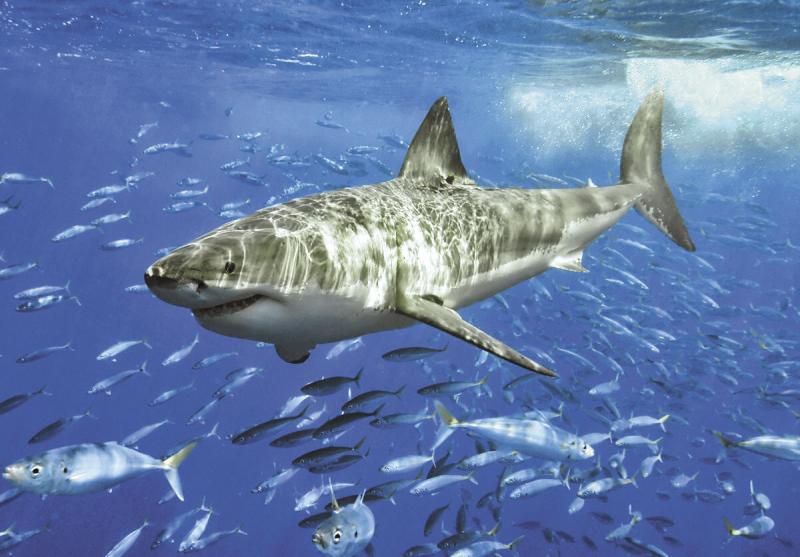University of Delaware professor of marine biology Aaron Carlisle will discuss his experience, during a research cruise to the White Shark Café, at the next Ocean Currents lecture set for 7 p.m., Thursday, July 19, in Room 104 of the Cannon Laboratory on the university’s Hugh R. Sharp Campus in Lewes.
The White Shark Café has perplexed scientists since 2002, when marine scientists took notice of an abnormally large annual migration of great white sharks in the location between Hawaii and Baja California. This mysterious, Colorado-sized area of the Pacific Ocean had been referred to as an ocean desert, because scientists previously believed it offered very little food for animals.
In this public lecture, Carlisle will discuss his findings and personal experiences from his month-long expedition to the area this spring aboard the Schmidt Ocean Institute’s research vessel, Falkor. Carlisle will also give details on how scientists study these apex predators, and how recent scientific advancements have altered experts’ understanding of them.
In this recent expedition, Carlisle and others sought to answer how and why these creatures are spending so much time in areas seemingly not conducive to their survival. The group of researchers collected biological samples, attached camera tags to a number of creatures, and gathered data with the assistance of one of UD’s Robotic Discovery Laboratories autonomous underwater vehicles operated by postdoctoral researcher Danielle Haulsee.
This lecture series is free and open to the public. Seating is available on a first-come, first-served basis. This lecture is appropriate for all age groups.
Carlisle recently joined the University of Delaware faculty as an assistant professor of marine biosciences in the College of Earth, Ocean and Environment’s School of Marine Science and Policy. He is a member of an international research marine conservation consortium, as well as the IUCN Shark Specialist Group, which seeks to secure the conservation of the world’s sharks, rays and chimaeras. Over the course of his career, he has also worked as a member of the Pacific Shark Research Center, and alongside the NOAA Environmental Research Division.
Carlisle’s research is broadly concerned with how biotic and abiotic (living and non-living) environments interact with organisms, influencing behavior, distribution and other dynamics of species of fishes and elasmobranchs (sharks, skates and rays). He seeks to understand how ecology, physiology and the environment interact to influence the distribution, behavior and ecology of marine organisms.






















































